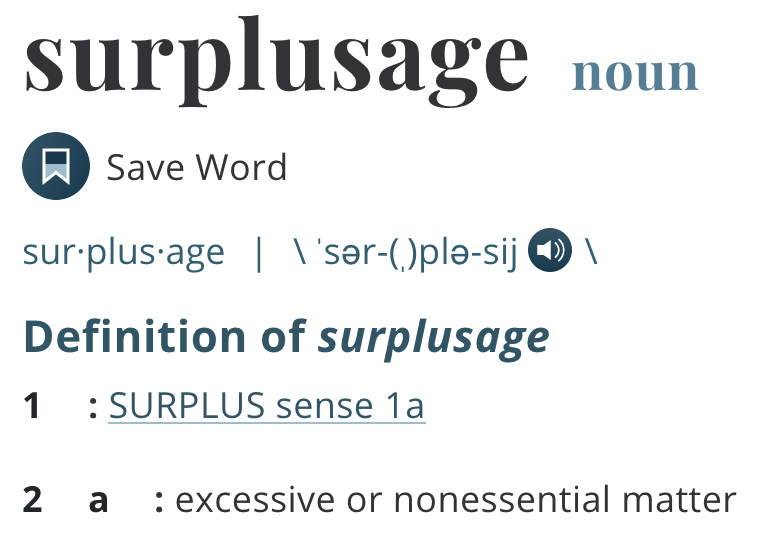Bob Tzudiker is a writer known for Newsies (1992), The Hunchback of Notre Dame (1996), and Tarzan (1999) and has written for every major studio. Bob is also an Adjunct Professor of feature film writing for the John Wells Division of Writing for Film and Television at USC’s famed School of Cinematic Arts.
I’ve always loved Mark Twain’s 14th Rule for Writing. It is a marvel of compression, in which form and message are exact mirrors: Eschew surplusage.

We all write too many words. Extra verbiage can always be found no matter how many times you comb through your draft. What’s the problem with extra words? They’re a drag: a drag on the reader’s momentum. (Could I have cut the second “drag?” Sure. But the two usages of the word differ, so I give myself a pass.)
“What’s the problem with extra words?”

The god of screenwriting is named Momentum. You must serve this god by giving me, the reader, the DESIRE to turn the page. And the next page. You want me to forget the passage of time and everything else I might desire so that I can see what happens next.
You must leave me with invisible questions, tiny mysteries or a major suspense that does… what? MAKES ME EAGER TO TURN THE PAGE! I’m sorry to shout like that, but I think it is important.

“How do you know what you can cut?”
But Twain isn’t just talking about being verbose. You can have a surplus of events, too. Or characters. Or jokes. How do you know what you can cut? Again, let us consult the master, Mr. Twain. His 2nd Rule is: The episodes of a tale shall be necessary parts of the tale, and shall help develop it. Necessary. And help develop the tale. The rest is surplusage, which must be eschewed. Ruthlessly.

I would add one final rule of thumb for guiding your scissors, which I call Bob’s First Rule of Thumb: If a scene does not serve two masters, cut it. Every scene must advance at least two elements. Story and character. Mood and plot. Character and humor. Pick any pair you like, but if it isn’t part of a pair, remove it or rewrite it so it reveals something more. If you don’t cut it from the script, I promise the editor will cut it from the film.
“Every scene must advance at least two elements. Story and character. Mood and plot. Character and humor.”
And here’s a trick for revealing surplusage: read your script aloud. Even if you are the only person in the room, reading aloud causes the material to enter your brain via different pathways.

Speak every word. You don’t make the same assumptions about what you have written. It forces your mind to stay with what is actually on the page. And it is a great help in catching typos and grammatical errors, which are (say it with me)… a DRAG!
Leave a Reply